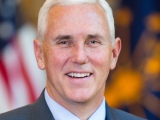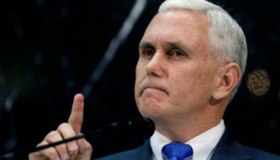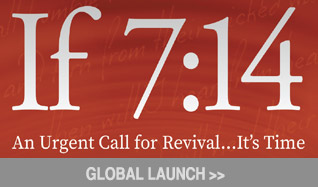Indiana Gov. Mike Pence is under heavy fire for signing his state’s new religious freedom law.
Misleading media coverage, homosexual activists, celebrities, boycotts, and companies willing to yank millions of dollars in business from Indiana are piling on to punish the governor for his courageous stand.
But Gov. Pence is not standing alone.
The FAMiLY LEADER, Focus on the Family’s CitizenLink, the Family Research Council, and the Manhattan Declaration – as well as a groundswell of people like you through the Twitter hashtag #StandStrongPence – are just a few of those standing with Gov. Pence in defending religious liberty and the freedom of conscience.
“People who created the law could use a little encouragement right now,” CitizenLink told its supporters. “We urge you call them. Let them know you support RFRA, the Religious Freedom Restoration Act.”
- Gov. Mike Pence’s office: (317) 232-4567
- Indiana Speaker of the House Brian Bosma: (317) 232-9677
- Sen. President David Long: (317) 232-9416
“You don’t have to go into any great detail; just let them know they did the right thing and they don’t have to change anything in response to the outrageous criticism,” CitizenLink said. “The outcome of this high-profile fight will have impact in every state, not just Indiana.”
(Note: Since publishing this post, Gov. Pence has signed an amendment to the RFRA bill that weakens the protections afforded by the original draft).
Opponents of the law have had a wide-open platform in the mainstream media to falsely claim RFRA is “hateful,” that it will somehow give businesses license to discriminate against homosexual patrons.

In reality, the law merely reasserts that courts and legislatures shouldn’t indiscriminately trample the First Amendment rights of business owners who can’t in good conscience provide a good or service to an activity they object to on religious grounds.
“What does the law actually do? It’s fairly simple, really,” CitizenLink explained. “It sets a standard that state government must follow when dealing with cases that involve religious freedom. The government must demonstrate that it has a ‘compelling interest’ to get involved, and then, if a remedy is called for, it must use the ‘least restrictive’ solution. … It does not give anyone a “license” to do anything. It does not say what the outcome of challenges should be. It does offer similar protections to what’s already in federal law.”
“Imagine the shoe on the other foot,” illustrates Bob Vander Plaats of The FAMiLY LEADER. “Should a kosher butcher be forced to either slaughter hogs or face a lawsuit that could put him out of business? Should a Jewish baker be compelled to make a cake with a swastika? Should a homosexual printer be forced to print flyers from a group like Westboro Baptist Church – no one should be forced to print that rhetoric – and if they refuse, should they be sued out of existence?
“When we walk away from the pillar of religious liberty, it has many ugly side streets and avenues this country does not want to go down,” he says.
“I don’t see why this should be such a controversial issue,” Vander Plaats reasons. “Similar laws have been passed in 19 states. President Clinton signed an RFRA into federal law. Barack Obama voted for an RFRA when he was a state senator in Illinois. Religious liberty in America should be a good thing. It’s the one freedom that gives life and birth to all our other freedoms.”
Much of the pressure Gov. Pence has been under in the media and from celebrities and companies threatening boycott has been misguided or misleading, claiming the RFRA law will do things it won’t. Some of it, like the publicized pressure Pence has faced from Apple CEO Tim Cook, Vander Plaats asserts, is flatly disingenuous and hypocritical.
“Cook wants to criticize Indiana for upholding religious liberty, yet Apple just opened a store in Saudi Arabia, where they execute homosexuals,” Vander Plaats points out. “I suspect Tim Cook, who is openly homosexual, is attacking Indiana because of his fear RFRA might prevent a business from being forced to celebrate same-sex marriage.”
For more on what the RFRA actually does – and what it doesn’t – Travis Weber, the director of the Family Research Council’s Center for Religious Liberty, has written a succinct summary of the federal RFRA, the model for state RFRAs, including the one just put in place in Indiana: available here.
The FRC is also asking people to join their “I Stand with Gov. Pence for Freedom” petition.



